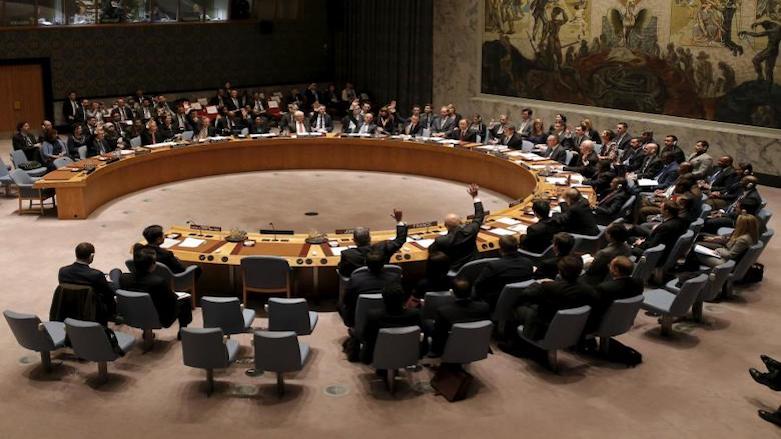UN sanctions 8 individuals, businesses linked to IS, al-Qaeda

ERBIL, Kurdistan Region (Kurdistan 24) – The UN Security Council on Thursday voted unanimously to impose sanctions on eight individuals and businesses linked to the Islamic State (IS) and al-Qaeda.
The vote was part of a wide-ranging resolution aimed at stepping up international efforts "to counter terrorism and terrorist financing."
The UN sanctions blacklist now includes IS leaders in Southeast Asia, IS-affiliated groups in Syria, foreign fighters from the Caucuses and an illegal money exchange business. The list already includes over 250 individuals, groups, and organizations.
The resolution was called "another important step" to defeat IS and their affiliates.
“Even as the Islamic State group is losing ground in Syria and Iraq, the threat is far from over," said U.S. deputy ambassador Michele Sison. “The group will continue looking to spread its ideology and radicalize new groups around the world.”
She also warned more measures would be taken as the US urges for greater international cooperation to cut off funding to extremist groups, prevent them from acquiring weapons, and step up cooperation to address the issues of foreign fighters returning home.
On the list were Selselat al-Thabab, Jaysh Khalid Ibn al Waleed, Jund al Aqsa and the Hanifa Money Exchange Office branch located in Albu Kamal, Syria.
"All member states of the United Nations must work together to prevent groups from declaring allegiance to IS and becoming one of its affiliates," Sison said. "We must mobilize action to address ex-IS fighters who return or relocate to other countries — we can't allow them to become a new threat elsewhere."
According to the resolution, the listed individuals and organizations are subject to an assets freeze, travel ban and arms embargo.
Russia's deputy U.N. ambassador Vladimir Safronkov said the action was "a very important step to strengthen the counterterrorism regime, and now all member states without any exception have to implement the decision of the Security Council."
He nevertheless regretted that the resolution "had not taken account of concerns of the Security Council’s members," and it did not include Russia’s proposal to impose a total ban on any trade and economic ties with the areas controlled by IS.
Editing by Ava Homa
